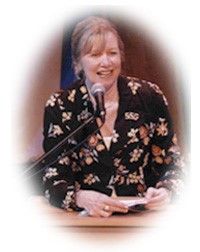I suspect that every book has a story behind it; certainly all my novels do. The way this book came about took me by surprise. After I finished touring for The Same Sweet Girls, I began imagining characters, situations and plot ideas for my next novel, thinking I’d begin a story that had been brewing in my mind, having to do with the changing landscape of the South.
I was distracted, however, by a family situation that was becoming more and more alarming. My youngest sister was having marital difficulties, and I urged her to call me anytime, day or night, when she needed to talk. I’m the oldest in a family of three girls, and we are unusually close. I was twelve when my youngest sister, Nancy Jane, was born, and I lugged her around and spoiled her as though she were a beloved doll, come to life. When I entered my teens, my girlfriends and I kept it up, once teaching Nancy Jane, age four, to “read” Shakespeare. We told everyone she was a prodigy as she faked it, jabbering away in what sounded like Elizabethan English as her pudgy little finger moved down the page. Few of our classmates, who were mostly farm kids, knew Shakespeare, so they were easily impressed.
From the beginning, Nancy had seemed like a special blessing to the family because of the trauma of her premature birth, when we were told that our mother’s life was in danger and there was very little hope of the baby’s survival. Nancy not only survived but grew into a beautiful, smart, and spunky young woman. When she married a man the family adored, and after years of fertility difficulties, had a son, I couldn’t have been happier. During the following years, their close-knit family of three seemed idyllic, and Nancy and I grew even closer. But as I began the process of plotting my fourth novel, my sister’s happy home fell apart. During the agonizing months leading up to her divorce, I had to remind both myself and Nancy that she was a survivor because at times, I didn’t think she would.
At this point, my novel took on a new direction. Out of the helplessness I felt when confronted with my sister’s pain , I decided to write about the havoc and heartbreak caused by divorce. I envisioned a story other than the tried-and-true “By overcoming many obstacles, newly-divorced heroine finds herself,” but I was at a loss to come up with one.
Then life brought me a serendipitous happening: At an author luncheon in Atlanta, I signed a book for a lovely, 
